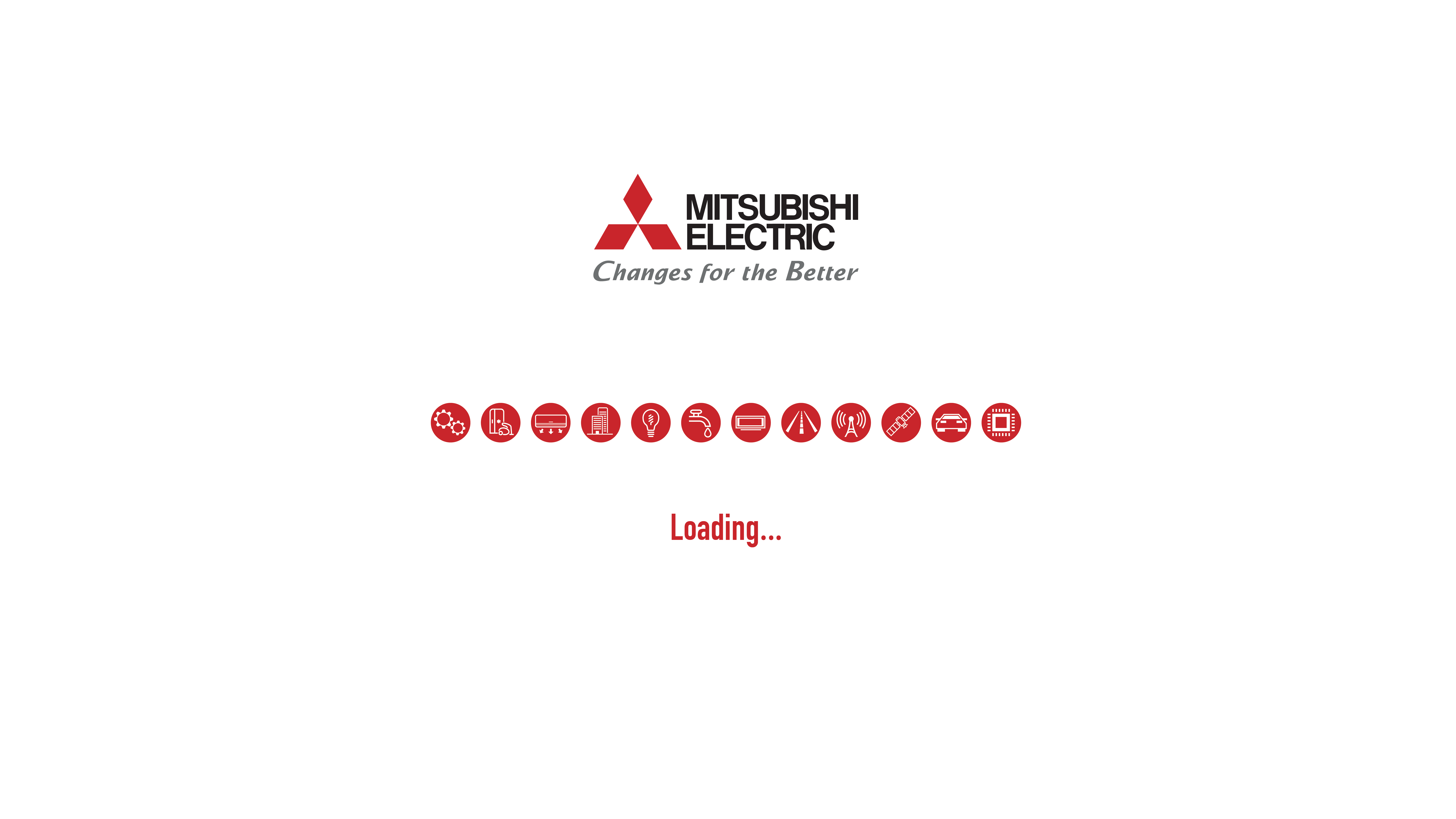He further emphasized that technology alone cannot drive meaningful change without the collaboration of partners, customers, and the broader community.
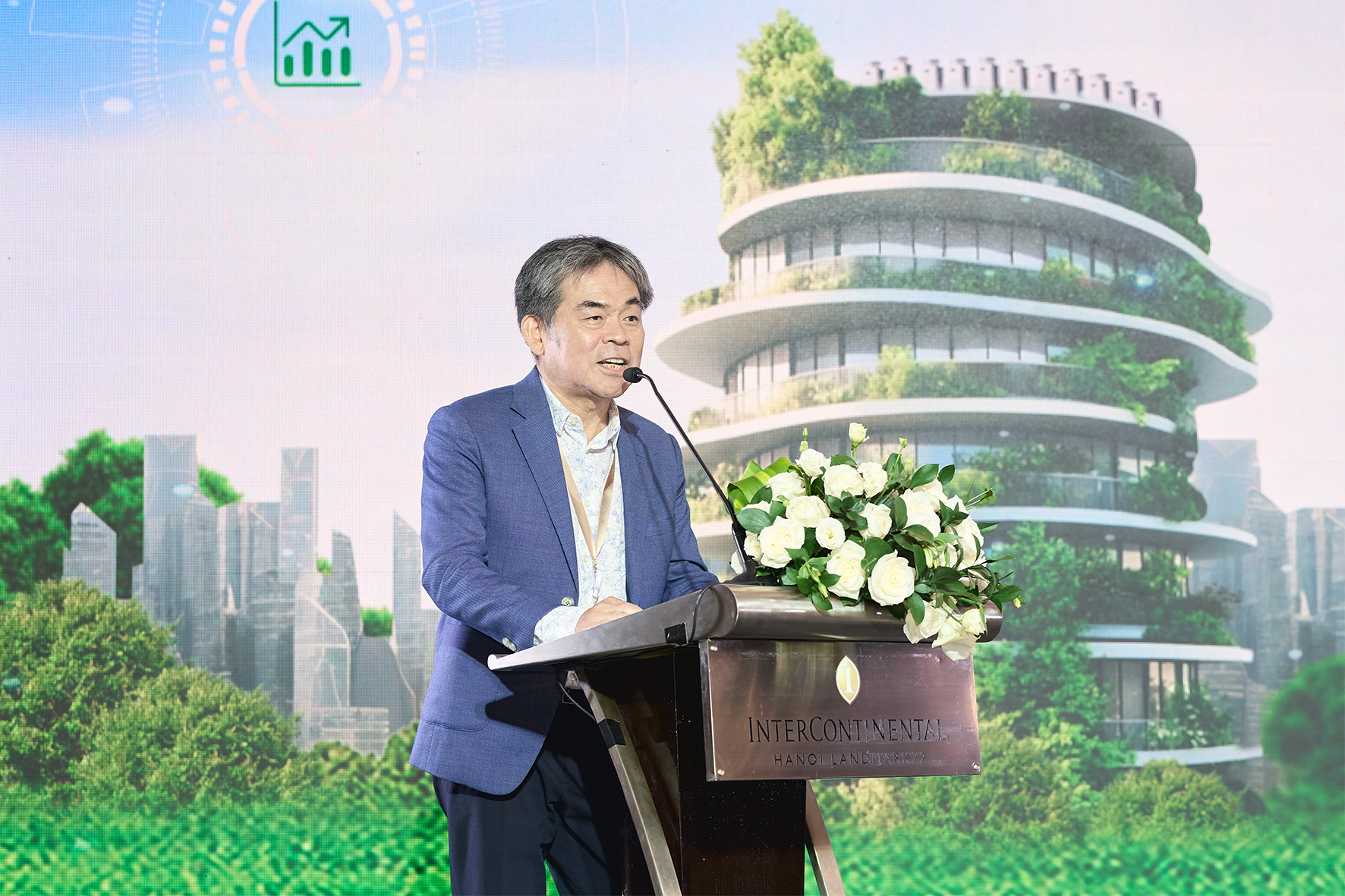
Mr Takashi Nishikuma, Managing Director of Mitsubishi Electric Việt Nam.
Within the event framework, the two co-organizers presented an integrated ecosystem of solutions designed to realize Net Zero Energy Buildings (ZEB) in Vietnam, focusing on three key areas:
1. Central Air Conditioning Systems (VRF City Multi) and Next-Generation Heat Pumps
These solutions optimize energy efficiency and reduce electricity consumption. The air conditioning systems feature inverter compressors, heat recovery technology, precise zone temperature control, modular and flexible designs, quiet operation, and easy integration with building management systems.
The new-generation heat pumps use high-efficiency inverter technology and eco-friendly refrigerants, enabling efficient hot-water generation even when the outdoor temperature drops below 0°C.
2. Building Management and Monitoring System (BMS)
Serving as the building’s "brain", the BMS allows managers to monitor, analyze, and coordinate building operations efficiently—reducing both emissions and operational costs.
3. Launch of Nexiez-Fit Elevator Model
This newly announced elevator line is designed specifically for low-rise buildings (under 10 stops) with a load capacity of 450–630 kg. Nexiez-Fit features a sustainable and refined design that optimizes investment costs while maintaining Mitsubishi’s three core values: Safety - Comfort - Quality.
In addition, green technologies for elevators and escalators were also showcased. A representative from Mitsubishi Elevator Vietnam shared: "These technologies have already been successfully applied in major projects across Vietnam, helping to save energy, optimize operating costs, enhance safety, and reduce emissions for environmental protection."
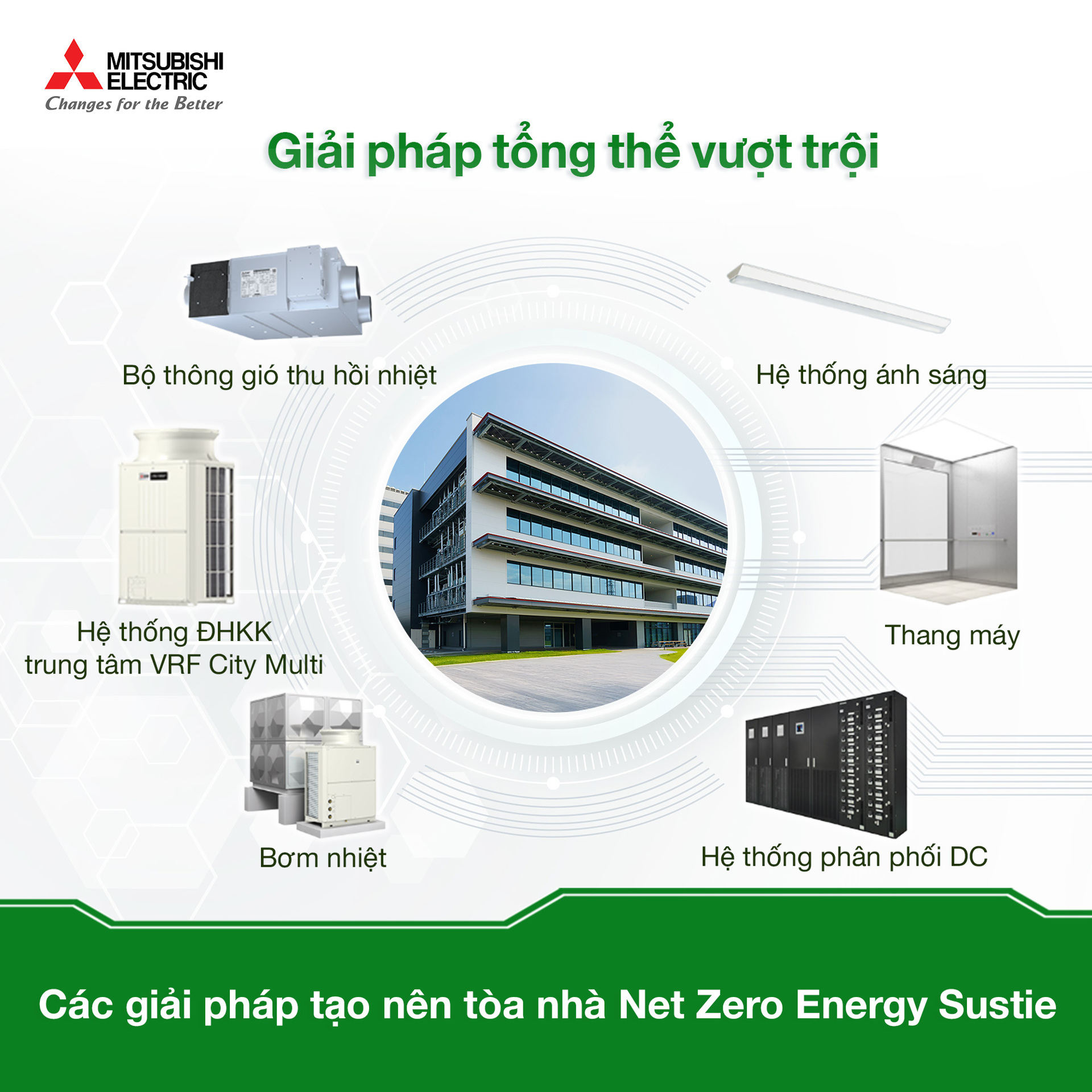
Building solutions of Mitsubishi Electric.
Mitsubishi Electric introduced SUSTIE, a demonstration building in Japan that has achieved Net Zero emissions. The building maximizes natural resources such as sunlight, wind, windows, and eaves to minimize energy use, while incorporating high-efficiency systems to ensure comprehensive energy savings. Its rooftop solar panels enable self-sufficient energy generation, proving that ZEB is feasible even in urban areas with limited space.
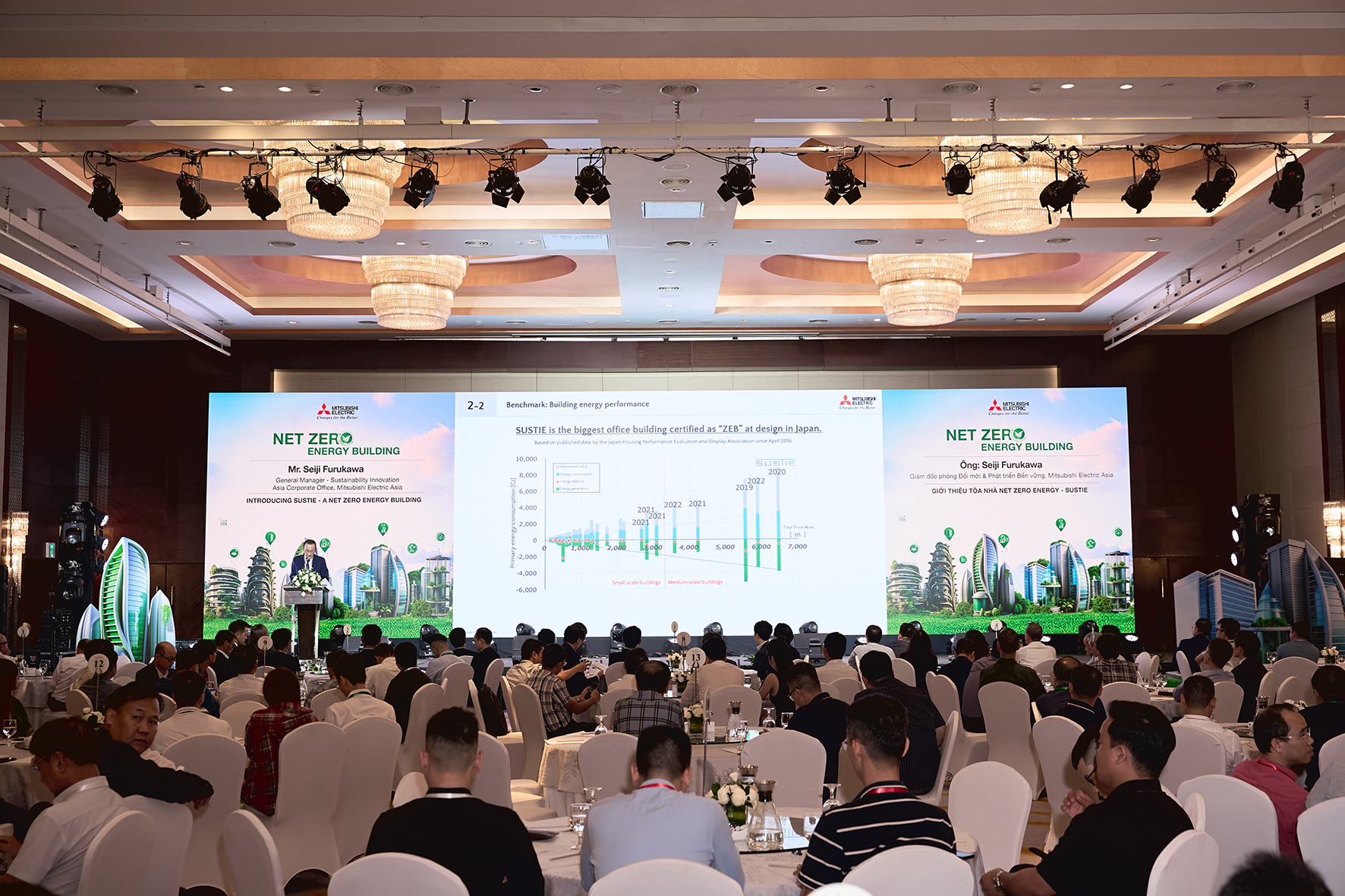
Through the event, Mitsubishi Electric reaffirmed that technology, when combined with a sustainable vision and collaborative partnerships, can turn Net Zero commitments into reality, helping Vietnamese businesses integrate more deeply into the global green supply chain.
Thanks to its efficient design and operation, the Sustie building has received numerous prestigious international recognitions, including:
-
ZEB Certification (BELS, Japan) – 2022
-
CASBEE Smart Wellness Office S-Rank – acknowledging its ability to enhance user comfort and well-being
-
ASHRAE Technology Award (August 2024) – reinforcing its global standing in green architecture
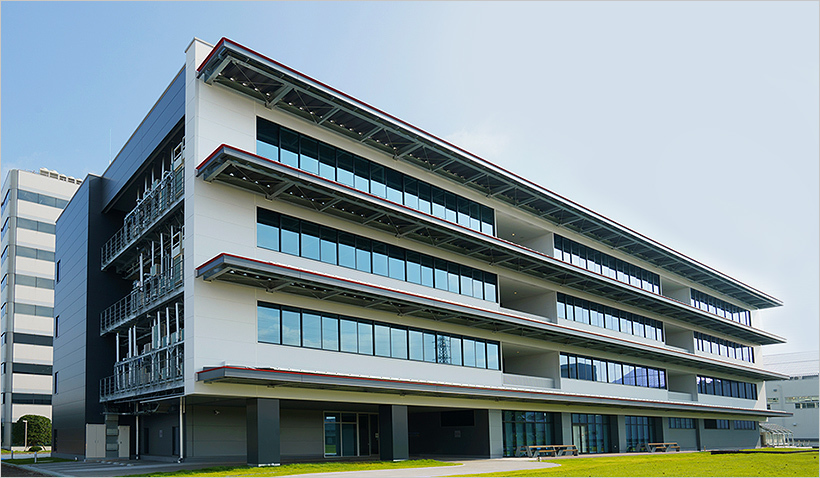
Net Zero Energy SUSTIE of Mitsubishi Electric.
Climate change is exerting increasingly severe impacts. In early August, Hanoi recorded a record-high temperature of 40.3°C, while the Central and Mekong Delta regions continued to suffer from natural disasters, threatening the lives and livelihoods of millions. If no action is taken, climate change could cost Vietnam up to 12.5% of its GDP, according to the World Bank’s report "Vietnam 2045: Towards a Greener Future."
A representative from the UNDP Vietnam highlighted that reducing greenhouse gas emissions is the key to combating climate change. At COP26 (2021), Vietnam’s Prime Minister pledged that the country would achieve Net Zero by 2050—a significant challenge, as Vietnam ranks among the top 20 greenhouse gas emitters, accounting for 1% of global emissions.

